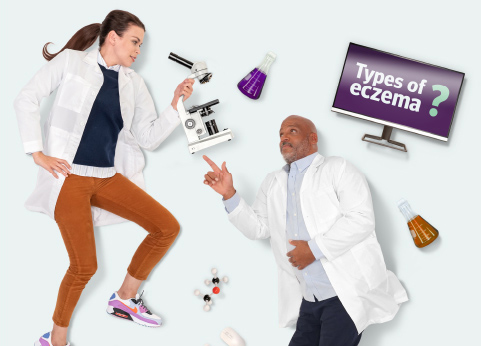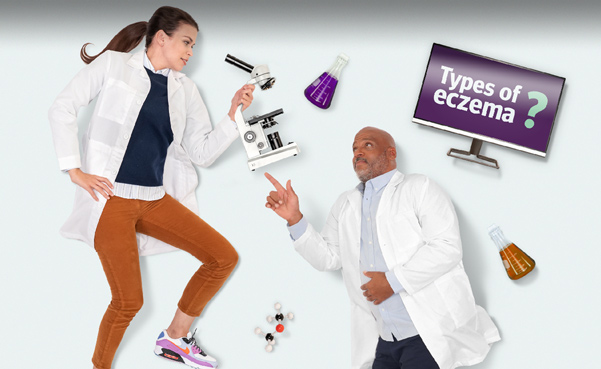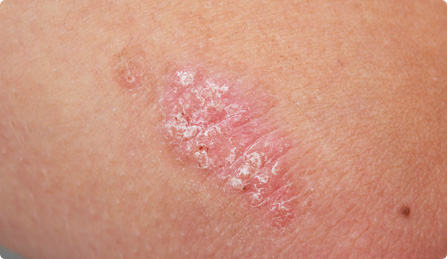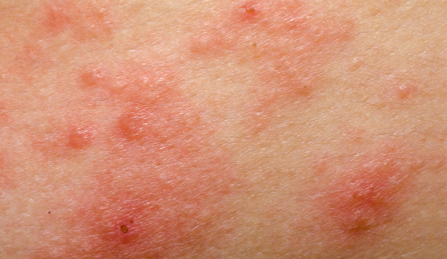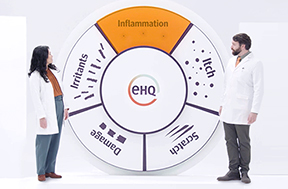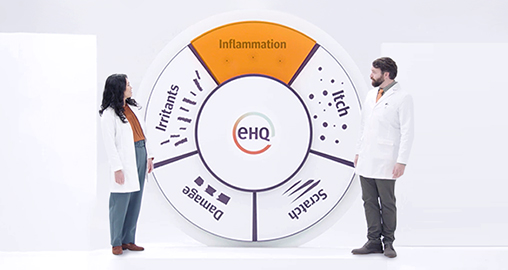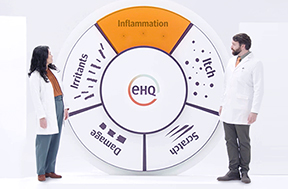What are the different types of eczema?
Before we go too far, let's get familiar with all the types of eczema that appear on people’s skin and what makes them distinct.
The many faces of eczema
Here at Eczema HQ, we devote most of our research, energy, and attention to the most common type of eczema, atopic dermatitis—which is chronic, inflammatory, and related to an overactive immune system response. But there are many other types of eczema and they each have their own symptoms and triggers. An eczema specialist is your best source for getting a proper diagnosis.
Here’s a quick breakdown of the other types of eczema:
- Contact dermatitis occurs when the skin comes in contact with an irritant or allergen and becomes inflamed
- Neurodermatitis results from intense itching and scratching that’s so bad it irritates the nerve endings in the skin and leads to thick, leathery patches of discolored skin
- Dyshidrotic eczema appears as small, itchy, fluid-filled blisters on the fingers, palms, toes, and soles of the feet, and it can lead to flaking and scaly, cracked skin
- Nummular eczema (or discoid eczema) looks different than other types of eczema, with itchy, coin-shaped spots that can be triggered by dry skin, insect bites, scrapes, chemical burns, or reactions to inflammation
- Seborrheic dermatitis is a chronic form of eczema that appears near oil-producing glands on the back, nose, scalp and other areas and may be related to stress and hormones
- Stasis dermatitis results from problematic blood flow in the veins and occurs when pressure develops, often in the legs, and fluid leaks from the veins

Get the inside scoop on eczema
(atopic dermatitis)
Sign up for emails from The EHQ Team and expand your knowledge of eczema. You'll get:
- A free copy of Eczema HQ Magazine
- Tips and tricks for managing symptoms
- Handy guides and tools for doctor visits
- Info and updates on treatment options
Have you been diagnosed with eczema (atopic dermatitis)?
Have you been diagnosed with eczema (atopic dermatitis)?
See how others responded:
Thanks for taking part in the science!
Did you know over 31 million Americans have some form of eczema? That's a lot of itching and scratching! Learn more about itch and rash.
Immune system showdown: Eczema and psoriasis
To the untrained eye, an eczema rash can easily be confused for a psoriasis rash.
Even when you look beyond the many similarities in physical symptoms, you’ll find eczema and psoriasis are both chronic, inflammatory diseases, which further confuses the comparison. This is why a dermatologist will be your best source for getting a proper diagnosis. And while it’s possible for some people to have both conditions, there are important differences.
Location
Although eczema and psoriasis may appear anywhere on the body, eczema is typically in the “bending” areas—like behind your knees or in your elbow creases—while psoriasis most commonly appears on the outside of the knees and elbows.
Sensation
Eczema and psoriasis can both be itchy, but the eczema itch can be more intense and persistent than psoriasis.
Prevalence
More than 31 million people in the United States have some form of eczema, while 8 million people have psoriasis.
Appearance
Eczema makes your skin red and inflamed and your skin may be scaly, oozing, or crusty. While psoriasis also causes red patches, these patches may appear silvery white. On skin of color (for both eczema and psoriasis), the redness may appear darker brown, purple, or gray.
Onset
Eczema can often appear during childhood, especially between infancy and age 5. Psoriasis usually shows up between ages 15 and 25.
Want to learn more about psoriasis?
Take a look at how eczema appears on different parts of the body and on different skin types:

